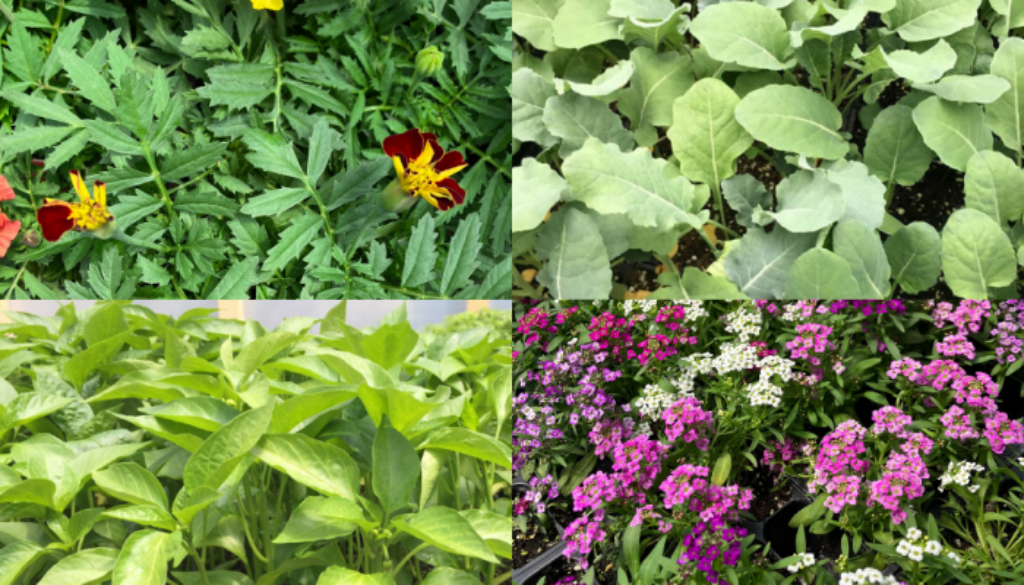Did You Know? Companion Planting!
Plants need good companions to thrive. Except for growth and fruiting, plants are relatively idle objects. They are rooted in one spot and don’t seem to have much control over their environment. In fact, however, relationships between plants are varied – similar to relationships between people. In plant communities, certain plants support each other while others, well, just don’t get along. Plants, like people, compete for resources, space and nutrients!
Some Plants Bully Others. Certain plants grow rapidly, crowd others and take more than their fair share of water, sun and nutrients. Some exude toxins that retard plant growth or kill plants. A common example of this is the Black Walnut tree that produces hydro juglone. Other plants are upstanding citizens and do good by adding nutrients to the soil, drawing beneficial insects into the garden or by confusing insects in search of their host plants.
As a gardener, you’re both the mayor and the city planner for your garden city. By growing plants with good companions, you bring peace and prosperity to your town. Alternatively, the planting of disruptive plants can quickly bring your garden to ruins. (OR WEEDS)
Proper Spacing with Companion Planting. As with city planning, the way you lay out your vegetable garden is crucial. Avoid planting vegetables in large patches or long rows and interplant with flowers and herbs. Large groupings of one type of vegetable serve as a beacon to problematic pests. If you mix in flowers and herbs, it becomes more difficult for pests to find your veggies. The scent of flowers and herbs, as well as the change up in color, is thought to confuse pests. Certain flowers and herbs attract beneficial insects to your garden.
Three Sister Planting. Almost any article on companion planting references the Native American “Three Sister Planting”. This age-old grouping involves growing corn, beans and squash – often pumpkin – in the same area. As the corn stalks grow, beans naturally find support by climbing up the stalk. Beans, as all legumes, fix nitrogen in the soil, which supports the large nutritional needs of corn. Squash grows rapidly and the large squash leaves shade out weeds and serve as natural weed block. Good plant companions work in support of each other.
Many long-time gardeners swear that growing certain plants together improves flavor as well. While science hasn’t found support for some of the benefits of companion planting, there is support for the above information. Garden wisdom and experience supports these traditional beneficial plant companions.
Remember to include some flowers and herbs to repel bugs and pests in the garden. Marigolds are one of the most useful plants in the garden as an ally and we have plenty for sale, and a whole lot more, at MountainRose this year!




